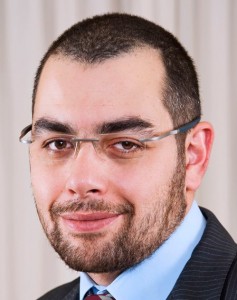
Our talk this week is about the 2012 Egyptian presidential debate, the first ever presidential debate in Egyptian history. It was held between presidential candidates Abdel Moneim Aboul Fotouh and Amr Moussa, broadcasted live on May 10, 2012 and moderated by famed TV personalities Yousri Fouda and Mona El Shazly. We take a quick stroll down memory’s lane to shed some much needed light on this debate and how did it contribute to the outcome of the elections if ever!
The Myth:
Several people often claim that this debate hurt the prospects of both Aboul Fotouh and Moussa and hurt their competitive positioning, ultimately costing both men the presidency.
The Reality:
There is little to no evidence to suggest that this debate had indeed sealed the fate of both Aboul Fotouh and Moussa.
First, the debate was hailed as a debate between the two front-runners of the presidential race. That statement was a fallacy on its own. All throughout the elections, there has not been a shred of credible polling to attest to the real pulse on the streets. Therefore, while the two candidates were portrayed as front runners, they were inconsequential as far as the game went. Hence, whoever won or lost on this day would not have altered the outcome of the elections.
Second, while the debate seemingly pitted stability against revolutionary fervor, neither candidates was a champion of either camps on or off TV. A society which was and still is highly polarised has quickly been making its choices and leaning towards the extreme ends long before the debate took place. Therefore, no matter what either candidates could have said or not said, the state of mind would never have changed.
Third, several subsequent interviews of all candidates provided all runners ample opportunities to make perfect fools out of themselves in a manner far more wide-reaching than the Aboul Fotouh/Moussa duel. In fact, several candidates embraced those opportunities and did just that! None of those interviews, however, helped or hurt the prospects of those other candidates. Therefore, it is fair to assume that a failed TV appearance is not necessarily the game maker or breaker in an election campaign.
Fourth, the failure of both candidates was not sealed by a mere debate; this failure was brought about by subpar campaigning. While Aboul Fotouh ran a high octane campaign fueled by youth participation and high profile endorsements, this campaign failed to leave a mark outside metropolitan areas. Moussa also had a surprisingly weak ground campaign that relied heavily on the man’s persona and previous achievements. Both men relied greatly on a pull strategy encouraging voters to actively choose them. This was by all accounts, a horrible choice in a society which boasts a 30% literacy rate! This was contrary to more of a push strategy was applied by real front runners Morsi and Shafiq who ran a well oiled ground machine that sought out voters in every possible corner.
The claim that a debate can change the outcome of elections in Egypt is a farce. Politics firmly remains a game of numbers and mobilisation. Winning elections is all about brunt work and field campaigning rather than loud rhetoric, talk show appearances and meetings behind closed doors. Moussa and Aboul Fotouh were effectively out of the 2012 presidential election long before answering the first question on this day!



